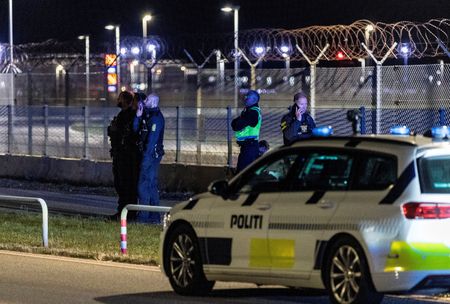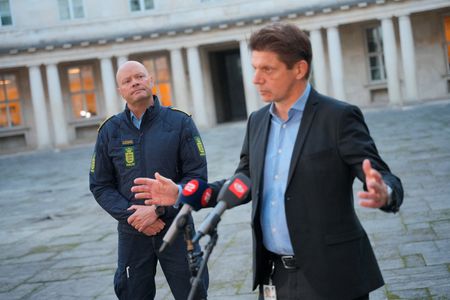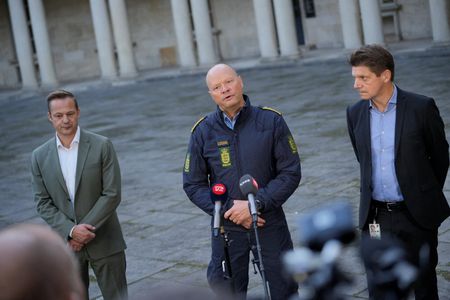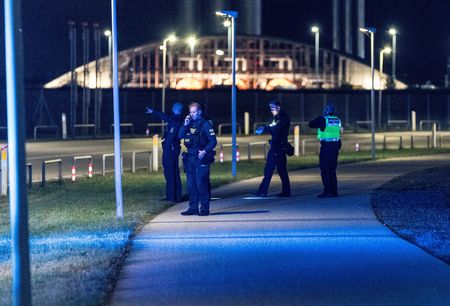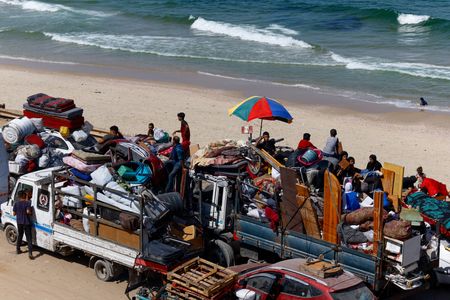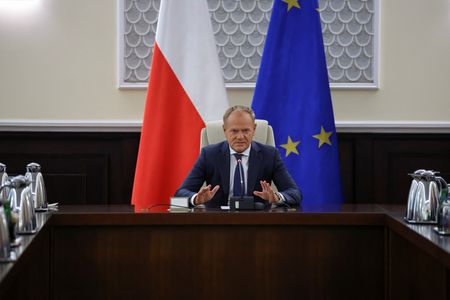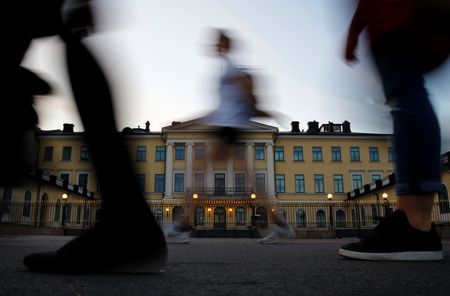By Stine Jacobsen
COPENHAGEN (Reuters) -Denmark said drones that halted flights at its main airport on Monday were the most serious attack yet on its critical infrastructure and linked them to a series of suspected Russian drone incursions and other disruptions across Europe.
Danish Prime Minister Mette Frederiksen said the drone activity seemed designed “to disrupt and create unrest”, though authorities refrained from naming suspects.
Sightings of two or three large drones near Copenhagen airport late on Monday halted all take-offs and landings for nearly four hours. Authorities in Norway also shut the airspace at Oslo airport for three hours after a drone was seen.
The shutdowns at the Nordic region’s busiest airports left tens of thousands of passengers stranded.
DENMARK NOT RULING OUT ANYTHING
“What we saw last night is the most serious attack on Danish critical infrastructure to date,” Frederiksen said in a statement sent to media on Tuesday.
“We are obviously not ruling out any options in relation to who is behind it. And it is clear that this fits in with the developments we have observed recently with other drone attacks, violations of airspace, and hacker attacks on European airports,” she said.
In comments to public broadcaster DR, Frederiksen noted recent suspected Russian drone incursions into Polish and Romanian airspace, as well as Estonia reporting that Russian fighter jets had entered its airspace on Friday.
“I certainly cannot deny in any way that it is Russia,” she said.
Danish police declined to comment on a post on X by Ukraine’s President Volodymyr Zelenskiy, without providing evidence, that Russia was behind the Copenhagen airspace violation.
Suspicions of Russian involvement were ungrounded, Russia’s ambassador to Denmark, Vladimir Barbin, said in a statement sent to Reuters. “The incident in the sky above Copenhagen Airport reveals a clear desire to provoke NATO countries into a direct military confrontation with Russia,” he said.
Western security agencies have in recent years said hybrid threats, particularly from Russia, were becoming increasingly aggressive.
Such threats include everything from physical sabotage of critical infrastructure to disinformation campaigns, suspected espionage, and cyberattacks.
Moscow has consistently denied responsibility for any hybrid attack in Europe.
DRONES CAME FROM DIFFERENT DIRECTIONS, THEN DISAPPEARED
Danish police said the drones in Denmark came from different directions, turning their lights on and off, before eventually disappearing after several hours.
Danish police Chief Superintendent Jens Jespersen told reporters on Tuesday authorities were investigating several hypotheses, including the possibility that the drones were launched from ships.
Denmark’s main airport is located close to a busy shipping lane where vessels enter and exit the Baltic Sea. A Royal Danish Navy ship was patrolling the waters next to Copenhagen for several hours on Tuesday morning, data from Marinetraffic.com showed.
“It’s an actor who has the capabilities, the will, and the tools to show off in this way,” Jespersen said. It was too early to say if the incidents in Denmark and Norway were linked, he said.
The Norwegian security police, PST, told Reuters the situation was “still unclear” and that it was in “routine contact with actors both nationally and internationally.”
(Reporting by Stine Jacobsen, Jacob Gronholt-Pedersen and Nerijus Admaitis, editing by Terje Solsvik, Michael Perry, Aidan Lewis)

